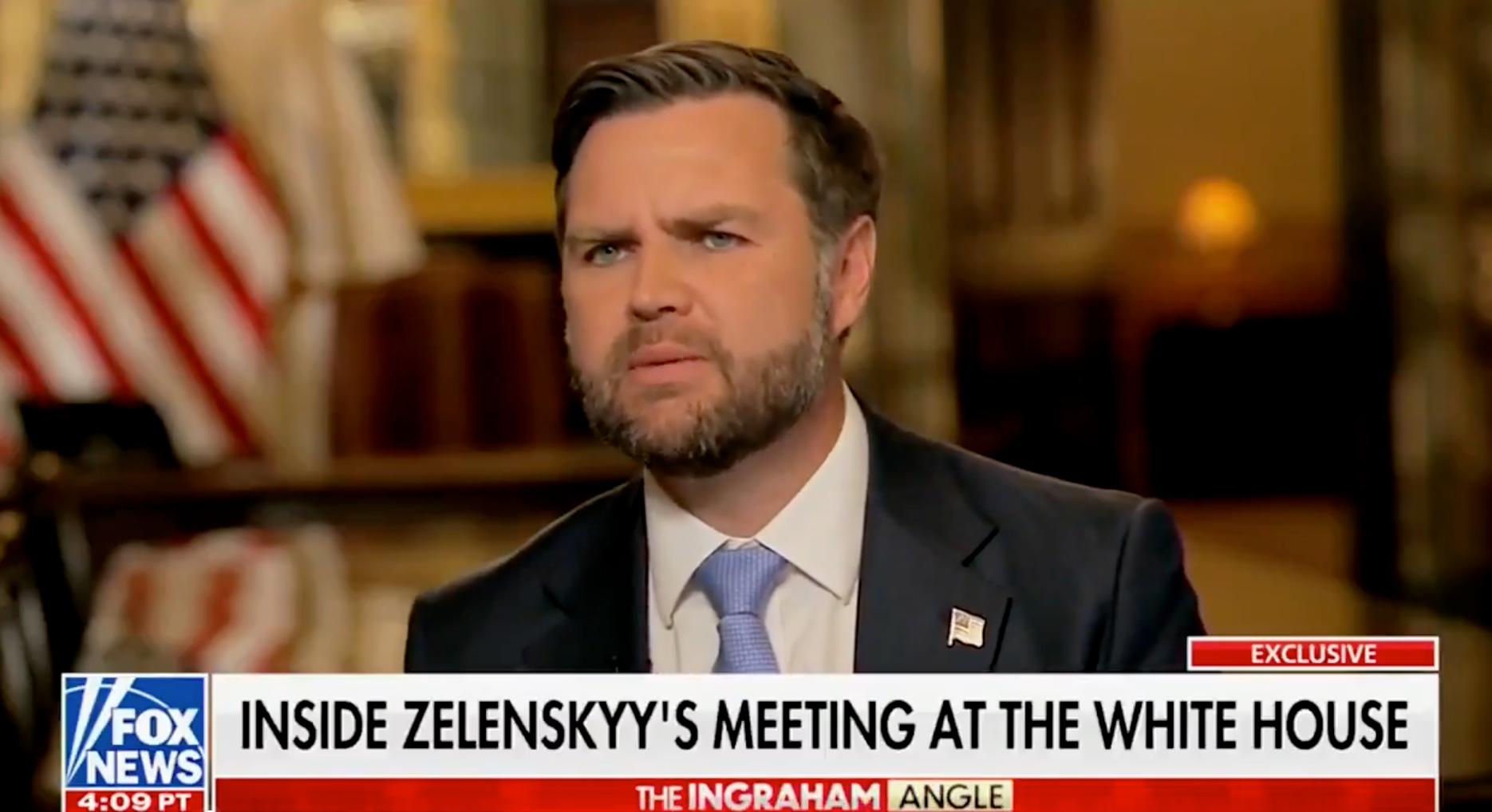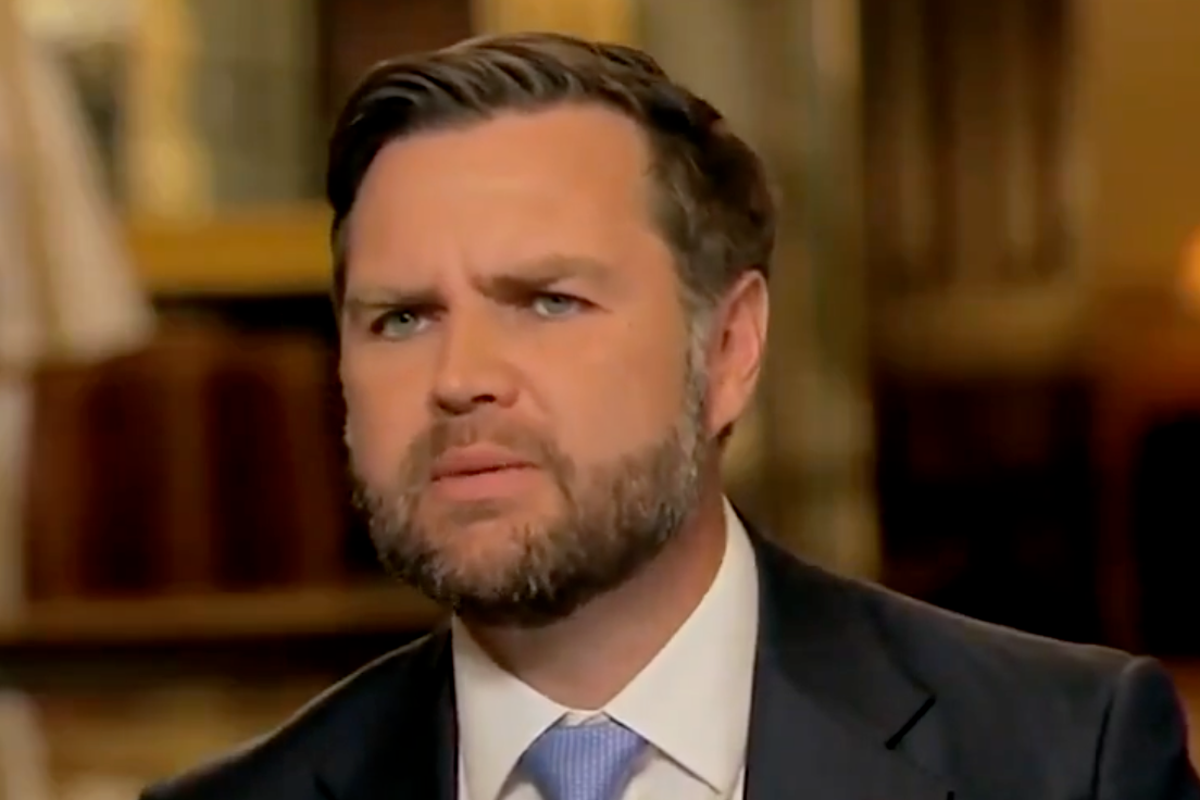From reproductive rights to climate change to Big Tech, The Independent is on the ground when the story is developing. Whether it’s investigating the financials of Elon Musk’s pro-Trump PAC or producing our latest documentary, ‘The A Word’, which shines a light on the American women fighting for reproductive rights, we know how important it is to parse out the facts from the messaging.
At such a critical moment in US history, we need reporters on the ground. Your donation allows us to keep sending journalists to speak to both sides of the story.
The Independent is trusted by Americans across the entire political spectrum. And unlike many other quality news outlets, we choose not to lock Americans out of our reporting and analysis with paywalls. We believe quality journalism should be available to everyone, paid for by those who can afford it.
Your support makes all the difference.
Read more
U.S. Vice President JD Vance has said that Europe should “carry the burden” and take the “lion’s share” of the responsibility for safeguarding Ukraine should a peace deal with Russia be secured.
Defense Undersecretary for Policy Elbridge Colby has meanwhile said that American involvement in any future peacekeeping mission in the region would be “minimal,” according to Politico.
The comments come as President Donald Trump continues in his attempt to play mediator in separate talks between Vladimir Putin and Volodymyr Zelensky, meeting with the Russian president in Alaska last week and Zelensky in D.C. on Monday in the company of Europe’s leading heads of state in pursuit of a breakthrough.

open image in gallery
U.S. Vice President JD Vance discusses America’s involvement in attempting to end Russia’s war in Ukraine with Laura Ingraham on Fox News on Wednesday August 20 2025 (Fox News)
Trump has ruled out sending any American ground troops into Eastern Europe but said it could support the peacekeeping effort by air, stating that Europe’s powers would be the “first line of defence” but receive “a lot of help” from the U.S.
Speaking to Laura Ingraham on Fox News on Wednesday, Vance said, “I think that we should be helpful if it’s necessary to stop the war and to stop the killing. But I think that we should expect, and the president certainly expects, Europe to play the leading role here.
“What he said very clearly is: Look, the United States is open to having the conversation, but we’re not going to make commitments until we figure out what is going to be necessary to stop the war in the first place.”
Despite the lack of major announcements so far, the VP insisted that “great progress” is being made.
“You can never say with certainty what the outcome in this situation is going to be,” he told Ingraham.
“But we now have the Russians talking to the Ukrainians; they’re talking details about what would be necessary on each side to stop the fighting, to stop the killing.”

open image in gallery
Russian Foreign Minister Sergei Lavrov and U.S. Secretary of State Marco Rubio talk as they attend a press conference held by U.S. President Donald Trump and Russian President Vladimir Putin last week (Reuters)
Russian Foreign Minister Sergey Lavrov struck a much more cautious note on Wednesday, warning that negotiations on security guarantees for Ukraine without Moscow’s involvement would amount to a “road to nowhere.”
“We cannot agree with the fact that now it is proposed to resolve questions of security, collective security, without the Russian Federation,” he said. “This will not work.”
Although Trump has dismissed the prospect of Ukraine joining NATO, a red line for Putin, his special envoy, Steve Witkoff, and the military alliance’s Secretary General Mark Rutte have proposed offering Kyiv a collective defense agreement of its own similar to that underwriting the 32-member bloc, which Lavrov may have been obliquely warning against.
Colby’s comment came as European military leaders met with Gen. Dan Caine, Chairman of the Joint Chiefs of Staff, at which defense officials from the U.K., France, Germany, and Finland reportedly pushed the U.S. delegation for more details on what military resources it was prepared to provide.
“There’s the dawning reality that this will be Europe making this happen on the ground,” a dismayed Nato diplomat, who was briefed on the talks, said afterwards.
“The U.S. is not fully committed to anything.”
“I don’t know where that leaves us,” one of the European officials said.
“Pretty much back to where we were in the spring with the coalition of the willing.”
